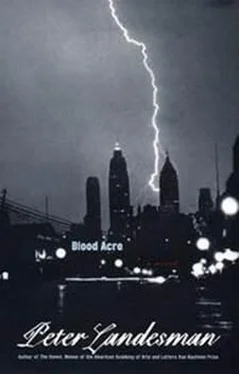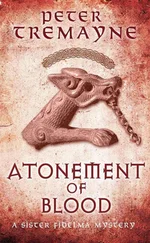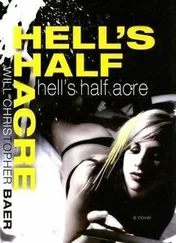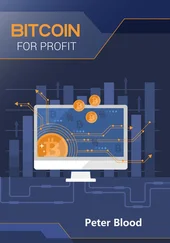Nathan taps the mute button, flicks the mouthpiece into place and slides the phone in his pocket. The barge-like car bears him along, shooting him through a bottleneck of orange work trucks and zebra-striped barriers into wide-open sky. Leaning forward on the wheel, his eyes lift, his own voice simpering a few famous bars.
Now his beeper vibrates, a cricket caught under a plate. He fumbles with dials and buttons small enough to be bumps or imperfections of design. He presses them individually and in various combinations, accomplishing nothing. The sound of a blaring horn makes him raise his head, and one hand on the wheel, eyes everywhere-road, lap, pocket, speedometer, road-his thighs close around his thermal mug as something jerks his head to the right. A red sedan has pulled alongside and is keeping his own pace exactly. The passenger leans forward, as though the driver has said something admirable about Nathan's car. As though Nathan's car were noteworthy, especially elegant, a vintage model, which it isn't: it is a badly beaten 4x4 with running boards and caged lights and a smoked plastic windbreak, everything a TV voice-over narrating the journey of a 4x4 across a butte somewhere-it looked like Hell-told him he had to have, and Nathan, sucker for a hitch to a dream, believed.
He squints over at the men. Both are wearing suits. Their car drops back, and looking at their silhouettes in the rear-view mirror, Nathan understands that the car has been tailing him all along; for the last few weeks, it seems. He had never had any doubt he was being followed, though until now they had acted with discretion. Today, a change has taken place; they want him to know.
“There," Nathan murmurs, pressing down. He shakes his head. A miracle. How is it done-it almost doesn't matter what the message says-how words transmit through air-who needs actual talk-we have answering machines for when we're not at home and Twenty-first Century Message Center/Beepers for when we are.
A little proud, a little smug, he doesn't understand: how had he ever gotten along without it? Pressing thumb and forefinger in rapid succession, he squints at the tiny screen:
Cabron. Fuck you and your tunnel. Turn on your phone.
Refugees have been straggling into the Spindrift all afternoon, emerging from the snow singly and steadily and already a little tight. Everyone a conspiracy of one, a statue of something. Opposite the bar three big windows bordered by tinsel and Christmas lights face the street and the Red Hook piers and the harbor beyond-alternating pictures of the dingy radiance inside the bar and the length of barren lamplit waterfront across the street, so that if you turn your head with either each coming or each going of the lights' blink you have opposing views of the world, in and out, you and them. You and some other you, Claire thinks, watching through her own reflection the snow devils rising off the street and jigging out of control, collapsing like drunks in the doorways.
Down the street the hulking converted warehouses of the Jehovah's Witnesses are recast as castles in the sky. The artificial turrets looming over the entrance ramp to the Brooklyn Bridge trumpet the veiled threat: now passing up God's Kingdom. The young men and women in their heels and trench coats are filing past the bar to mealtime or to their homes, a good day's work done. They've turned out their Watcbtower in the tens of thousands in fifty languages, convincing the world that the Big Bang is a hoax, that Christ's crucifixion wasn't enough to purge us of original sin, that we must go door to door for deliverance. Brooklyn, Claire knows, is home base, their safe haven, one of seven spots on earth prophesied by someone or other to survive the apocalypse. She thinks that sweet and hopeful. Fixing on her face an economical smile, she returns their cheerful nods.
Someone in the bar has actually brought a baby. The cries grate on her; she feels them like radio signals in her fillings, setting her on edge. And underneath the murmurings from the perky blonde anchoring the local TV news, the outside sweeps in through the windows. In comes the clanging of the distant buoys. In comes the constant hiss of traffic along the Brooklyn-Queens Expressway.
Claire returns to the bar. The baby is walling. The bartender, a small Greek with corkscrew hair, has turned his face up to the TV. There, footage of a sinking boat and the hunched backs of drowned bodies-the Dominicans, she assumes-dropping one by one beneath the waves as the unseen news helicopter hovers overhead, its rotors spreading the choppy water while one of the bodies-can it be?-actually seems to be waving.
"Martini," Claire says, eyeing the little Greek pouring her gin. She worries about him. Last week, the Arab who owned the bodega a few blocks away was shotgunned in cold blood, blasted into the racks of Snickers and M &M's. It's the Old West out there once again, these city store owners pioneers in their way, risking everything to nickel-and-dime their way to some low-fat version of prosperity. Bartenders are no different; any old nut can wind up at the end of their bar, running a tab, waiting for closing time to reach inside his jacket. Her own clients, for instance; thanks to her they are walking around free on ball, or just plain free. Claire resolves to call the Times when she returns from her holiday, have her paper chucked at her door from a passing car. She will phone an organic produce company and have delivered to her live and virginal things. She will shop for clothes exclusively by phone. She will buy a new phone by phone. She will call friends when she knows they will be out, preferring tape to an actual human being. More and more a life by proxy.
"This is no place for children," she proposes, to no one, as the baby walls on. Pouring and straining Claire's martini, the Greek brings the glass forward by the stem, as if offering his grandmother a rose.
Santos has appeared beside her. She is plucking macadamia nuts out of a bowl of bar mix, shoving aside the pretzels and the little orange fish. "Where have you been?" she asks, and busies herself by pulling his jacket down at the bottom; it seems, this minute, too short. She presses the back of her hand to his cheek. "Don't get too comfortable. If I have to keep looking at that baby we'll have to leave. I'm sorry-you were saying?"
"I wasn't. We had an extra call. Another illegal fell out of a plane. Or he jumped."
"They're 'ust dying to get into this country. I don't understand it." Outside, a sudden volley of thunder. "And this weather," she says.
His porcelain neck and hands, she sees, his black suit, damp, clinging, revealing every mystery, mysteries she once thought she had solved. But he has, lately, become strange again. He is growing puffy and obscure, an emblem of contrast and contradiction.
"Unfortunately," she says, "I can't get too drunk. At some point tonight I need to go to the office." She picks at his lapel. "You won't guess who I ran into today. Well, not into him, exactly. It was one of his little messes."
A blank expression crosses Santos's face. "I saw Nathan, Claire."
She cocks her head in confusion. "Extraordinary. That's just what I was going to say."
"After all these years, it's incredible, he actually looks better."
"It was typical of him, some pregnant kid in Rikers he just overlooked, just left her there. He never would have done that ten years ago, maybe five years ago. I never could understand his method. Not that he ever had one, just shooting from the hip, no strategy at all. One day, Robin Hood, the next day-whatever he is."
She sees he has, in fact, if not looking directly at her, been taking her in.
"You're not breathing, Errol," she says. "Breathe-"
Her hand, long and slender, rests between them. Santos sets his over hers. She makes a half-hearted attempt to pull away but he holds her down, looking directly into her face.
Читать дальше












